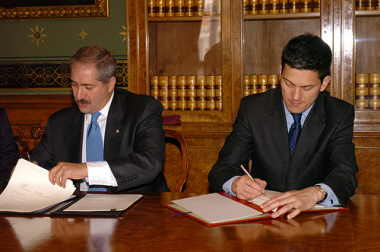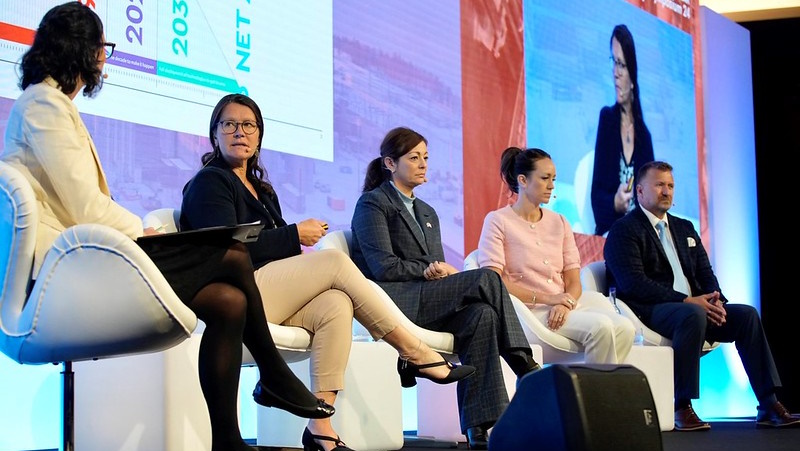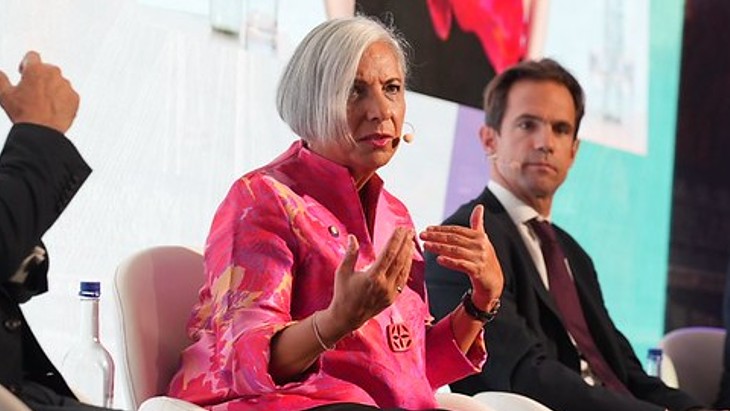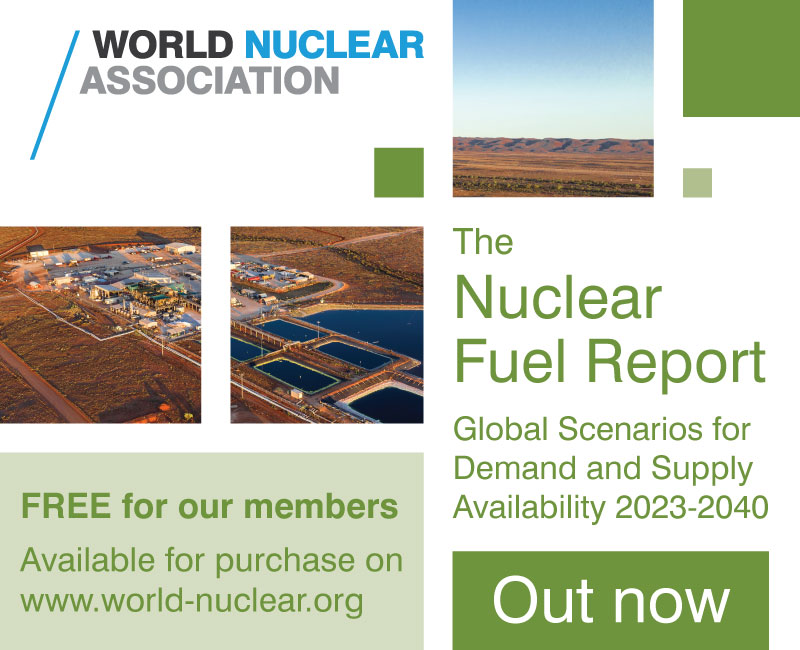Middle Eastern countries strengthen nuclear ties
 Recent days have seen diplomats from Jordan, the United Arab Emirates and Kuwait strengthening their ties with established nuclear power countries as they move towards setting up their own nuclear programs.
Recent days have seen diplomats from Jordan, the United Arab Emirates and Kuwait strengthening their ties with established nuclear power countries as they move towards setting up their own nuclear programs.
Recent days have seen diplomats from Jordan, the United Arab Emirates and Kuwait strengthening their ties with established nuclear power countries as they move towards setting up their own nuclear programs.
 |
Nasser Judeh and David Miliband (Image: Crown Copyright) |
A nuclear cooperation agreement between the UK and Jordan was signed in London by Jordanian foreign minister Nasser Judeh and the UK's foreign secretary David Miliband. "Today's treaty between the UK and Jordan commits the UK to helping Jordan develop its civil nuclear program," said Miliband. He went on: "If we are to move the world to a low carbon economy, then nuclear power needs to be an important part of the energy mix. But it needs to be developed in a safe and secure way, and the UK is pleased to be working with Jordan to achieve this."
Miliband commended Jordan on its approach to developing a civil nuclear sector and upheld the country's "transparent" program as a model for other countries wishing to develop their own civil nuclear programs.
Jordanian energy plans foresee a nuclear power plant for electricity and desalination in operation by 2015, and the country's Committee for Nuclear Strategy has set out a program for nuclear power to provide 30% of electricity by 2030 or 2040, and to provide for exports. As well as a raft of international cooperation agreements and memoranda of understanding covering both nuclear power and uranium exploration, it has agreed an Additional Protocol on nuclear safeguards with the International Atomic Energy Agency (IAEA) and signed up to the International Nuclear Convention on the Physical Protection of Nuclear Materials.
UAE-South Korea agreement
Meanwhile, the United Arab Emirates (UAE) has signed a bilateral civil nuclear energy cooperation agreement with South Korea, under the terms of which the South Korean government will help the UAE to develop its civil nuclear program over the next two decades through the transfer of technology, equipment and expertise. The agreement was signed by UAE foreign affairs minister Anwar Mohammed Gargash and South Korean vice foreign minister Kwon Jong Rak at a ceremony attended by dignitaries from the Emirates and Korea and reported by official Emirate news agency WAM.
Like Jordan, the UAE is taking steps towards establishing its own nuclear power program with plans to have several nuclear reactors in operation by 2020. It signed a bilateral nuclear energy cooperation agreement with the USA earlier this year and also has a nuclear cooperation agreement with France in addition to memoranda of understanding on nuclear energy cooperation with the UK and Japan.
France-Kuwait
Nuclear projects were also on the table for discussion at the 12th session of the France-Kuwait Joint Economic Committee. Kuwait's official news agency KUNA reported the words of French economy, employment and industry minister Christine Lagarde, speaking at a press conference after the meeting. Lagarde told reporters that France was "very keen on developing [nuclear energy] cooperation on a broad scale between authorities outside the country," adding that it was also keen for "capital partnership" between what KUNA described as "the state-held French company in question" and the Kuwaiti authorities.
Although less advanced on the road to nuclear power than Jordan or the UAE, Kuwait is also considering setting up its own nuclear program for power and desalination. Earlier this year it announced it was moving to set up a national nuclear energy commission in cooperation with the IAEA.


.jpg)










